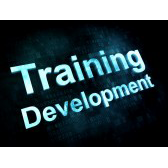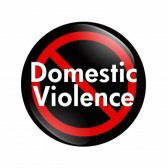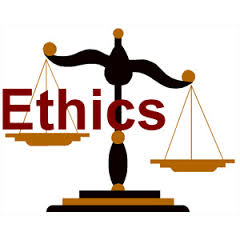- 2023, August 4, DRC, Dispute Resolution Center Conference, Video Download Only
- 2022, August 11-13, DRC, Dispute Resolution Center Conference Recordings
- 2021, August 11-13, DRC, Dispute Resolution Center Conference - Video Download Only
- 2020, August 13-15, DRC, Dispute Resolution Center Conference Recordings - Video Download Only
- 2019, August 15-17, DRC, Dispute Resolution Center Conference Recordings
- 2018, August 9-11, DRC, Dispute Resolution Center Conference Recordings
- 2017, August 10-12, DRC, Dispute Resolution Center Conference Recordings
- 2016, August 11-13, DRC Dispute Resolution Center Conference Recordings
- 2015, July 30-August 1, DRC, Dispute Resolution Center Conference Recordings
- 2014, August 14-16, DRC, Dispute Resolution Center Conference Recordings
- 2013, August 9-10, DRC, Dispute Resolution Center Conference Recordings
- 2012, August 23-25, DRC, Dispute Resolution Center Conference Recordings
- 2011, August 25-27, DRC, Dispute Resolution Center Conference Recordings
- Catch All Category
Product Categories
Filter by price
001 – Bundle One-2015 (4.5 CME Credits Ethics, 3.0 Domestic Violence and 1.5 Cultural Diversity)
$85.00 – $103.00002 – Bundle Two-2015 (4.5 CME Credits Ethics)
$40.00 – $49.00This discounted bundle should appeal to mediators needing ethics credits and includes the following presentations:
PL3 – (E) Mediator Ethics Plenary – Homer C. La Rue (1.5 CME Credits Ethics)
A12 – (E) What Did I Do…What Do I Do Now? - Irv Lamel, Melvia Green, Yale T. Freeman (1.5 CME Credits Ethics)
D3 – (E) It’s Complicated: Mediation Appearance, Authority and Agreements – Kimberly Kosch, Susan Marvin (1.5 CME Credits Ethics)
003 – Bundle Three-2015 (3.0 CME Credits Train the Trainer)
$25.00 – $31.00This discounted bundle should appeal to mediators needing train the trainer credits and includes the following presentations:
A2 – (T) Train the Mediation Trainer: Teaching Mediator Ethics – Eric Dunlap (1.5 CME Credits Train the Trainer)
B7 – (T) Train the Trainer: The Challenges of Adult Education – Blan Teagle (1.5 CME Credits Train the Trainer)
004 – Bundle Four-2015 (4.5 CME Credits Domestic Violence)
$40.00 – $49.00This discounted bundle should appeal to mediators needing domestic violence credits and includes the following presentations:
A7 – (DV) The Latest Research, Trends & Interventions in Family Violence for Mediators – Judith McKay (1.5 CME Credits Domestic Violence)
B4 – (DV) Post-Traumatic Stress Disorder and Veterans Court – Arve Wikestrom, Elizabeth Dilts (1.5 CME Credits Domestic Violence)
D4 – (DV) Domestic Violence in Notorious Cases – Michael DeLong (1.5 CME Credits Domestic Violence)
A01, Same Sex Marriage and Related LGBT Issues – William Herman, Michael Morris (1.5 CME Credits Cultural/Diversity Awareness)
$15.00 – $18.00This presentation will address the rapidly emerging challenges for the legal and mediation community in the evolving issues arising from same sex relationships and same sex marriages and divorces. Divorces in same sex marriages involve a number of complications very different from traditional marriage divorces. This is due to the fact that same sex marriages were prohibited for so many years despite individuals having long term committed relationships. Add in domestic partnerships, civil unions with different states enacting laws enabling same sex marriages at different times despite prohibitions in other states. Backlash legislation and actions are a daily occurrence. It anticipated that a recent U.S. Supreme Court ruling will be a current subject. The mere topic of same sex marriage can cause vigorous and heated debate. The presenters will encourage the attendees to freely participate in an open and candid dialogue on every aspect of this subject.
A02, Train the Mediation Trainer: Teaching Mediator Ethics – Eric Dunlap (1.5 CME Credits Train the Trainer)
$15.00 – $18.00This workshop is geared toward practitioners who teach (or who are interested in teaching) mediator ethics. Veteran trainer Eric Dunlap offers an interactive discussion on various methods and formats for teaching ethics, how to engage students in the ethical discussions, and agenda creation. The program addresses adult learning techniques so you can put some zest into your presentations.
A03, Mythbusters- Debunking the Practical Myths of the Mediation Process – Craig Dennis (1.5 CME Credits General)
$15.00 – $18.00This workshop will examine the practical pitfalls of routine mediation conduct that can often derail a mediation from the very beginning. Even the most experienced mediators will enjoy some critical self-examination to evaluate whether they are guilty of these habits!
A04, Prepare for Battle: How to Avoid the Minefield of Ethical Challenges Faced by Parenting Coordinators – Robert Merlin and Rene Tew (Non CME)
$15.00 – $18.00Parenting Coordinators face the ultimate challenge when working with high conflict cases and parents determined to push their personal agendas. This workshop will provide the tools needed to protect the PC and reduce ethical dilemmas before they enter the minefield. Face real life challenges through discussion and scenarios and learn how to apply the Family Law Rules of Procedure pertaining to parenting coordination to your cases. Have fun addressing ethical Issues through an interactive process regarding roles and boundaries, adhering to the court order of appointment, fees and retainers, new forms, working within a team, and applying parenting coordination when domestic violence, mental health and substance abuse are present.
A05, County Cases Trial Bound – Andrew L. Cameron, Marti Rose (1.5 CME Credits General)
$15.00 – $18.00This workshop spotlights county cases post mediation from pretrial conference through adjudication. The Honorable Andrew L. Cameron, County Judge, Orange County, Ninth Judicial Circuit, leads various skits demonstrating the roles and responsibilities of a county judge adjudicating cases. Lively interaction at the end of the simulations will offer insights into the judicial decision making process.
A07, The Latest Research, Trends and Interventions in Family Violence for Mediators – Judith McKay (1.5 CME Credits Domestic Violence)
$15.00 – $18.00This workshop will present recent research and perspectives on family violence. It will explore and define the types of family violence, new research and perspectives and the impact it has on mediation. The workshop will be interactive and will include multi-modal and multi-cultural perspectives.
A09, Facilitator’s Challenge: Building Consensus for Public Policy Decisions – Jeanne Maes (1.5 CME Credits General)
$15.00 – $18.00This is an interactive session focusing on the use of consensus building and conflict management strategies to transform a potentially volatile deadlock into a shared problem-solving process that better serves the public. The presenter will lead an abbreviated mock facilitated negotiation session based on a public policy scenario.
A10, How Do You Deal with This!? Ethical Dilemmas During Mediation – Michelle Jernigan, Brandon Peters, Richard Reinhart, Howard Marsee (1.5 CME Credits Ethics)
$15.00 – $18.00A11, iPhone & iPad Apps & Technology for Mediators – Christopher Hopkins (1.5 CME Credits General)
$15.00 – $18.00This hands-on presentation will introduce you to iPhone/iPad apps and other technology for mediators. Bring your devices! We're not turning our phones off for this session. This presentation is for tech-newbies and savvy users alike. You will learn (a) iOS apps for mediators; (b) technology for your mediation practice; and (c) introduction to latest presentation software that your clients are using. Back by popular demand, this session is fully updated from 2013 and 2014.
A12, What Did I Do-What Do I Do Now? – Irv Lamel, Melvia Green, Yale T. Freeman (1.5 CME Credits Ethics)
$15.00 – $18.00B01, Women Mediators and Gender Dynamics in Mediation – Kelly Hamer, Renee Thompson (1.5 CME Credits Cultural/Diversity Awareness)
$15.00 – $18.00Women Mediators and Gender Dynamics in Mediation: Gender plays a dynamic role in the mediation process. From who the mediator and the parties are, to how the parties will ultimately reach resolution, understanding how gender and gender styles affect reaching resolution can help mediators achieve resolution. This presentation is designed to address gender awareness issues in mediation for all genders.
B02, Guardianship Mediation – Kristen Mory, Christopher Shulman (1.5 CME Credits General)
$15.00 – $18.00Guardianship Mediation...Mediators will learn the unusual features present when mediating disputes involving guardianship - whether the dispute is over the initial adjudication of incompetence and appointment of a guardian or whether the dispute involves another situation after adjudication. By learning some of the aspects of how aging and mental disability can affect everyone, and applying them to the mediation process, mediators will learn how better to address issues of capacity to mediate, and the techniques to use to help the parties have an appropriate mediation experience, should you decide all present have the capacity to mediate.
B04, Post-Traumatic Stress Disorder and Veterans Court – Arve Wikestrom, Elizabeth Dilts (1.5 CME Credits Domestic Violence)
$15.00 – $18.00The presentation covers Veteran’s Court, the purpose, operation and goals and Post-Traumatic Stress Disorder (PTSD) and how it effects our veterans. Elizabeth R. Dilts, Esquire an attorney, mediator and Army Veteran presents on the details of the Veteran’s Court. Arve A. Wikstrom, MBA, JD combat veteran of Afghanistan and Lt. Colonel in the Army Reserves shares the military member’s perspective on PTSD.
B05, Parenting Coordination and Mediation: Emerging Similarities and Strategies to Manage Client Challenges – Matthew Smith, Dana Nolan (1.5 CME Credits Family)
$15.00 – $18.00The role of parenting coordinator (PC) is a relatively new one in the fields of family law and mental health and is evolving rapidly in practice. Recently, Florida enacted new rules that govern the practice of parenting coordination and the direction of PC work is moving towards dispute resolution and mediation. For the benefit of family attorneys, mediators and PCs, this presentation will shed some light on the role and responsibilities of parenting coordinators and compare/contrast PC work with mediation. As parents separate and divorce, there are a host of factors (practical, financial and emotional) that can set the stage for ongong conflict. This presentation will highlight how these stressors inpact the mediation and co-parenting process. We will problem-solve many common challenges and obstacles that parenting coordinators and mediators face helping parents work through their conflict and learn to effectively parent.
B06, Medical Marijuana: Mediating in Uncharted Waters – Bill Wohlsifer (1.5 CME Credits General)
$15.00 – $18.00This workshop will provide an update on Florida and federal medical marijuana law and legislation and prepare the mediator to recognize societal, generational and cultural diversity of opposing perceptions relating to the medicinal treatment with cannabinoids found in marijuana, as its use transitions from a taboo to a personal wellness option. Attendees will discover why Florida will soon see a rise in medical marijuana-related cases being ordered to participate in mediation. This presentation will also caution mediators as to what can and cannot be said in light of permissible marijuana use under restrictive state law and absolute illegality under federal law.
B07, Train the Trainer: The Challenges of Adult Education – Blan Teagle (1.5 CME Credits Train the Trainer)
$15.00 – $18.00How does training adults differ from teaching children? What are the fundamentals of adult learning and how can they be applied effectively in a mediation training venue? Can these techniques assist a mediator during a mediation session? These questions and more will be explored during this Train the Trainer session which will also be of interest to mediators at a more advanced level.
B08, Mediation on Appeal: The Same, or Different? – Teresa Musetto (1.5 CME Credits Appelate)
$15.00 – $18.00A combined lecture and facilitated discussion using fictional case studies illustrating factors that are either unique or shared in trial and appellate mediation.
B09, The Lean Arbitration: Providing a Truly Efficient and Effective Process for Parties – Rebecca Storrow, Harold Coleman (Non CME)
$15.00 – $18.00The basic principles of Lean are to provide a customer-centric approach to eliminating wasteful practices and to deliver greater value to the user or customer through more a more efficient and effective process. Given the increasing cost associated with arbitration, arbitrators can benefit greatly from applying this scientific approach to “cutting the fat”, reducing wastes such as delay, overproduction, and inefficient exchange of information. In this session, we will modify and apply Lean’s practical organizational tools, to improve arbitration practices that are are sometimes bloated and slow.
B10, Oh No You Didn’t: Things Not to Do or Say in Mediation – Michael Bloom, James Todd (1.5 CME Credits Ethics)
$15.00 – $18.00After a one year hiatus, Jim and Mike are back bringing their humor and knowledge to the DRC. But this time, it's not about what to do in mediation, but what NOT to do! This interactive session will allow you to improve your mediation skills by exploring things not to do during mediation. The session will review both tools, skills, ethical considerations, breaking impasse, and general techniques. Audience participation, interaction, and a mindset of having fun are required! Get ready for an entertaining and wild ride.
B12, Using Software to Improve Negotiations – Daniel Caine (1.5 CME Credits General)
$15.00 – $18.00Mediators tend to be hesitant to use computer software to help in their mediations, but they shouldn't be. This session will increase participants' comfort with using software to divide assets and to negotiate incomes. These tools will help us creatively explore alternatives quickly and easily, and lead to significantly better outcomes for the parties -- achieved in less time. We will also see how we can improve overall efficiency by enabling clients to populate the initial data electronically.
C01, How “Neutrals” Can Help Change the World: Saving Our Planet Earth and Children – Alexia Georgakopoulos (Non CME)
$15.00 – $18.00There may be no greater threat to future generations than Climate Change and nothing more valuable to humanity than our children as they represent our future. Two current projects will illustrate how mediators and facilitators can help change the world. Project One: 2014 was the hottest year on record. The Pentagon says that climate change poses immediate risks to our national security. This is a time that climate change conditions are volatile and unprecedented in the history of the human race. It seems fitting that facilitators can assist in public policy discussions. What began in the White House is now a topic underway in our state with leadership from a House Representative. Dr. Georgakopoulos was invited as the lead facilitator. Project Two: Mediators and facilitators can make a difference in the lives of youth who can learn what the value of peace means as a verb.This READING PEACE PAL PROJECT joins everyday ordinary citizens in the community with local youth.
C03, The Divisive Mind: Understanding the Mind-set of the Mediating Client – Rick Adams (1.5 CME Credits General)
$15.00 – $18.00Disagreement, Disparity, Disunity and uncompromising Dissension. What can cause two people who once were willing to agree to become so disagreeable? When did the disparity between trust and mistrust begin? How can disunity erupt out of a harmony that once was? And why is there so much dissension where there was once such a dovish consideration for peace? These are just a few of the questions and concerns that will be addressed in the upcoming seminar The Divisive Mind: "Understanding the Mental Mind-set of the Mediating Client." You don't want to miss out on this psychoanalytic and cognitive approach to understanding and identifying the causes to mediation impasse, before the mediation process ever begins.
C04, Recent Research and Trends in Mediation and Conflict Resolution – Steven Leigh, Judith McKay (1.5 CME Credits General)
$15.00 – $18.00This workshop will present recent research, trends, and perspectives related to mediation and other conflict resolution applications. It will explore new research and perspectives and the impact it has on mediation practice. It will also highlight research and trends related to the broader field of conflict analysis and resolution and applied applications. The workshop will be interactive and will include multi-modal and multi-cultural perspectives.
C05, Mediating with Parties Protected by the ADA – Debbie Howells (1.5 CME Credits General)
$15.00 – $18.00This presentation will provide an overview of the Americans with Disabilities and help prepare mediators for ADA situations. This summer marks the 25th anniversary of enactment of the ADA. The ADA has expanded opportunities by reducing barriers, changing perceptions, facilitating greater civic engagement, and increasing participation in community life. Yet, compliance with the law requires ongoing consideration. This course will examine the scope of the law’s coverage, explore examples of accommodations, and consider resources available to assist mediators in complying with the law.
C06, The Real Deal I – Stanley Zamor, Jeanne Potthoff (1.5 CME Credits Ethics)
$15.00 – $18.00The presenters, Stanley Zamor and Jeanne Potthoff will provide a repeat presentation of the Real Deal I presentation from the 2014 DRC Conference. The purpose of the presentation is to enhance the participants’ ethical awareness. Through the facilitated discussion, the participants’ will gain knowledge of the best practices for dealing with difficult situations during the mediation process. The learning objectives are to enhance the knowledge of the ethical standards that mediators must maintain, provide mediators with real life scenarios and the best practices for handling difficult situations and provide the questions posed to MEAC as well as the opinions. Specifically, the participants’ will be presented with a deck of cards. Each card will include an ethical dilemma or MEAC opinion. There will be a facilitated discussion regarding each card that is dealt from the deck of cards. The presentation will be provided to all mediators for ethics credits.
C07, Eldercaring Coordination: Who, What, Why, Where, When NOW! – Michelle Morley (Non CME)
$15.00 – $18.00What is eldercaring coordination? Why do we need it? Who will do it? Where, when and how? The Florida Chapter of the Association of Family and Conciliation Courts convened twenty statewide organizations which developed Guidelines for Eldercaring Coordinators in 2014. Pilot sites are developing in circuits across the state to study the implementation of the process and guide its development as a valuable resource for high conflict cases involving the care and safety of an elder. Qualifications of eldercaring coordinators will be reviewed as well as the composition of the training program and implementation of pilot sites. Learn more about this new process to reduce discord regarding an elder loved one, and promote healing for a family in transition at this most vulnerable time. Potential benefits as well as possible barriers that may limit its progress and will be discussed.
C08, Train the Mediation Trainer: CME Programs – Susan Dubow (1.5 CME Credits Train the Trainer)
$15.00 – $18.00This workshop is geared toward practitioners who teach (or who are interested in teaching) advanced continuing education (CME) programs. Veteran trainer Susan Dubow offers an interactive discussion on agenda creation, topic selection, formats that support adult learning and CME documentation for mediator renewal purposes.
C10, What’s It All About? An Introduction to Collaborative Law – Robert Merlin, Lana Stern (Non CME)
$15.00 – $18.00Collaborative divorce is a non-litigated, ADR method to help couples settle their divorce without the courts involvement. Collaborative law utilizes an interdisciplinary team of specially trained professionals made up of two Collaboratively trained attorneys, one neutral mental health professional and one neutral financial professional, who work together with the parties in a series of joint meetings. The parties voluntarily agree to abide by a non-litigated process: no depositions, hearings, subpoenas or opposing experts. Financial costs are frequently lower, the emphasis is on cooperation and privacy, and the parties work toward reaching an agreement that meets the needs and interests of their entire family. This allows the couple to learn better communication skills, to work together toward a win-win for each party, to focus on the welfare of their children as they parent together and to use interest based negotiation to resolve their disputes.
C11, Domestic Violence Injunctions: The Basics – Beverly Graper, Jeanne Caulfield (1.5 CME Credits Domestic Violence)
$15.00 – $18.00Find out what goes into the issuance of a Petitions for Injunction for Protection Against Domestic Violence. This workshop takes a step beyond basic Domestic Violence training to give participants a fuller understanding of the Domestic Violence Injuction process, from the writing of a Petition through issuance of a Final Order. The Florida Statutes that make up the founcation of this process will be discussed. When Domestic Violence issues show up in your mediation make sure that you have a solid working knowledge of one of the most basic legal procedures related to this issue: Injuction for Protection.
D01, Understanding Retirement Plans in Family Law Mediation – Matthew Lundy (1.5 CME Credits Family)
$15.00 – $18.00This workshop will focus on the often complicated division of retirement plans in family law cases. The speaker, Matthew L. Lundy, Esq. will give a detailed discussion and explanation of retirement plans in general, and then go over the most common mediation scenario. This workshop will primarily be directed to intermediate and advanced level family mediators.
D02, Mindful Co-parenting: A Child-Friendly Path Through Divorce – Jeremy Gaies, James Morris Jr. (1.5 CME Credits Family)
$15.00 – $18.00This workshop presents an approach to co-parenting that uses the framework of mindfulness as a basis for optimizing the co-parenting relationship between spouses with children at all steps in the divorce process. This approach addresses considerations in making a decision about separation and divorce, selecting a legal approach to divorce, drafting a parenting plan, and following a set of guidelines for co-parenting. A primary goal of the workshop is to provide attendees with a clear understanding of the co-parenting research and a set of skills that attendees can apply in a range of settings including mediation, attorney consultations, collaborative divorce, parenting coordination, divorce counseling, and other settings.
D03, It’s Complicated: Mediation Appearance, Authority and Agreements – Kimberly Kosch, Susan Marvin (1.5 CME Credits Ethics)
$15.00 – $18.00Workshop Description: This advanced ethics workshop is designed for mediators who mediate court referred cases in more than one area of the court system. This workshop will focus on the nuances between court procedural rules in the areas of party and participant appearance and authority and mediated agreements.
D04, Domestic Violence in Notorious Cases – Michael DeLong (1.5 CME Credits Domestic Violence)
$15.00 – $18.00This course will include an up to date review of Florida procedures for Court Injunctions and Court Protective Orders for Domestic Violence, Dating Violence and Repeat Violence. Subject matter will include a review of current and past celebrated cases of notoriety from news media accounts as they might pertain to Violence or Abuse. Active audience participation and Interaction will be high encouraged and audience/attendees will be asked to create their own personal "Mediator Safeguard Safety Checklist" for them to take home and use in their Mediator sessions by sharing copies of other checklists we will use in this training session.
D05, Mediate with Emotional Intelligence – Dr. Wanda Bonet-Gascot (1.5 CME Credits General)
$15.00 – $18.00Have you ever encountered a "difficult person" while engaged in a mediation? Mediators need specific skills to be successful in their roles and they need to be able to deal with all kinds of people. Research indicates that of the difference between top and average performance is attributed to emotional intelligence. Highly developed Emotional Intelligence is the foundation for effective interpersonal communication, conflict resolution, coaching and change management. As mediators' emotional intelligence increases, they can be better listeners and enhance communication between parties. In this course, mediators will learn to improve their effectiveness by enhancing their emotional intelligence.
D06, Acknowledging the 13th Player: Cultural, Economic, and Institutional Conflict and Bias – Carl Perdue, Debi Yohn (1.5 CME Credits General)
$15.00 – $18.00International Corporate and Finance Lawyer Carl H. Perdue, JD, LLM and Clinical Psychologist Dr. Debi K. Yohn Ed.D LSW explore Mediation Psychology, specifically; inter-personal, professional, institutional, and cultural bias in conflict resolution processes. Focusing on complex,high value cases, this interactive, high energy Workshop examines actual cases with a view towards assisting Mediation and Arbitration Professional in recognizing and effectively handling these intangible, but critical, issues.. The Workshop will also consider the organization and effective use of Co-Mediation in complex cases.
D07, Mindfulness in Mediation – Stephanie Byrd (1.5 CME Credits General)
$15.00 – $18.00Mindfulness in Mediation: Maintaining internal peace amidst external chaos, will teach basic principles of brain science and mindfulness to enhance self-regulation skills increasing the overall effectiveness of participants to engage in the mediation process. Attention, judgement, problem-solving, and creative thinking are necessary skills in mediation and are only fully accessible when we are regulated. As soon as emotions, such as, anger, fear, and anxiety are triggered, the nervous system shifts gears blocking access to the skills required for creating solutions. This workshop will teach participants how to identify dysregulation and enhance self-regulation through mindfulness practices.
E01, The Real Deal II – Stanley Zamor, Jeanne Potthoff (1.5 CME Credits Ethics)
$15.00 – $18.00The presenters, Stanley Zamor and Jeanne Potthoff will address ethical dilemmas and 2014 MEAC opinions during the Real Deal II presentation. The purpose of the presentation is to enhance the participants’ ethical awareness. Through the facilitated discussion, the participants’ will gain knowledge of the best practices for dealing with difficult situations during the mediation process. The learning objectives are to enhance the knowledge of the ethical standards that mediators must maintain, provide mediators with real life scenarios and the best practices for handling difficult situations and provide information regarding the MEAC opinions and current practices of mediators. Specifically, the participants’ will be provided with a deck of cards. Each card will include an ethical dilemma or MEAC opinion. There will be a discussion regarding each card that is dealt from the hand of cards. The presentation will be provided to all mediators for ethics credits.
E02, Conflict Resolution Principles: How to Get Parties Unstuck – Terry Morrow Nelson (1.5 CME Credits General)
$15.00 – $18.00Many times, participants come to a mediation "stuck." They want the mediator to help them find a solution to their challenges and are often exhausted and divided. This workshop is designed to provide quick, practical exercises that will help them gain understand of key principles of conflict and conflict resolution while learning together and working collaboratively. The workshop will help participants offer their clients common language that can offer help them move toward collective understanding and common ground.
E03, The Nuts and Bolts of Appeals – Wendy Ioquasto (1.5 CME Credits Appellate)
$15.00 – $18.00Although it may seem counterintuitive to mediate an appeal because the trial court has already determined the winner and loser, appellate mediation offers the parties another chance to control their own legal destinies and reach a mutually agreeable result, perhaps in the form of a global settlement. To succeed in appellate mediation, it is imperative for the parties to understand their realistic chances of success in the appeal. This presentation will provide an understanding of the nuts and bolts of the appellate process, including the explanations of the limited scope of appellate review and the standards of review for the different kinds of issues raised in appeals, which will aid the mediator to empower the parties to resolve the issues.
E04, Victim Advocacy in the Digital Age, Part 1 of 2 – Cynthia Rubinstein (1.5 CME Credits Domestic Violence)
$15.00 – $18.00With technology being a large part of our society, perpetrators of stalking and intimate partner violence regularly misuse technology to harass, monitor and terrorize. The use of any form of technology to stalk, repeatedly harass, threaten, or abuse another person may be considered cyberstalking. To fully support survivors and hold perpetrators accountable, victim advocates and service providers need to understand the various ways technology can be misused as a tool for abuse. In this interactive session participants will learn the various ways survivors can increase their safety and privacy using technology. Participants will also explore ways perpetrators misuse online spaces to stalk, abuse and harass, and how survivors and service providers can document what's happening and secure evidence of that abuse or stalking. Participants will learn strategies used by perpetrators through social media, location based applications, Bluetooth technology, and spyware.
E05, “Oops! I Meant to Say” Why Words Matter – Raleigh “Lee” Green, Kim Costello (1.5 CME Credits General)
$15.00 – $18.00When clients enter collaboration, they are most likely feeling exposed and defensive; therefore, the words collaborators use can greatly impact them. Words used in collaboration are particularly important because they aid in moving people from one side of an issue to another. This presentation highlights the importance of words utilized in collaboration.
E06, The Earlier the Better: A Look at Early Stage Mediation and Pre-Mediation Meetings – Zena Zumeta (1.5 CME Credits General)
$15.00 – $18.00Late-stage mediation has been a familiar process for attorneys in many jurisdictions. This method of dealing with impasses tends to work well to avoid trials, but clients today are also interested in reducing expenses and animosity. Early stage mediation is a method of accomplishing both. Additionally, research has begun to show the efficacy of pre-mediation separate meetings with parties. This workshop will examine both early stage mediation and pre-mediation meetings, and the do's and don'ts to make them efficient and effective.
E07, Understanding Multidisciplinary Approaches in Alternative Dispute Resolution – Marc Narotsky, Jorge Rice (1.5 CME Credits General)
$15.00 – $18.00This presentation presents historical findings that demonstrate the field of ADR has been the result of collaboration amongst tribal communities, and indigenous groups. Practitioners of ADR have included shamans, priests, and other non-judicial practitioners. There are several perceived conflicts in todays modern practice in the field ADR. We will explore these conflicts in an attempt to improve our craft as ADR practitioners.
F01, Victim Advocacy in the Digital Age, Part 2 of 2 – Cynthia Rubinstein (1.5 CME Credits Domestic Violence)
$15.00 – $18.00With technology being a large part of our society, perpetrators of stalking and intimate partner violence regularly misuse technology to harass, monitor and terrorize. The use of any form of technology to stalk, repeatedly harass, threaten, or abuse another person may be considered cyberstalking. To fully support survivors and hold perpetrators accountable, victim advocates and service providers need to understand the various ways technology can be misused as a tool for abuse. In this interactive session participants will learn the various ways survivors can increase their safety and privacy using technology. Participants will also explore ways perpetrators misuse online spaces to stalk, abuse and harass, and how survivors and service providers can document what has happening and secure evidence of that abuse or stalking. Participants will learn strategies used by perpetrators through social media, location based applications, Bluetooth technology, and spyware.
F02, Restorative Justice in Florida – Sandra Pavelka, Ph.D. (1.5 CME Credits General)
$15.00 – $18.00An Introduction to Restorative Justice in Florida will provide an introduction to the principles of restorative justice, the difference between restorative justice and mediation, and the use of restorative justice in Florida with an emphasis on Florida Statutes and case law.
F03, Don’t Be Blinded By the Sun: Ethically Navigating Through Confidentiality and Sunshine Law – Guilene Theodore, Kerry Raleigh Tipton (1.5 CME Credits Ethics)
$15.00 – $18.00As guardians of the mediation process, mediators of governmental disputes have a special interest in addressing the natural tension that exists between confidentiality of the process and the public interest considerations behind Florida's Sunshine laws. Mediators face ethical obligations and practical considerations as they navigate through governmental mediation. Sunshine law may play into more than traditional disputes involving governmental entities. The Sunshine Laws may apply to mediation of disputes involving labor unions, private organizations, and even individuals to whom decision-making authority has been delegated. This workshop will: 1) Provide an overview of the Sunshine Law; 2) Provide an update of Sunshine Law issues in traditional mediation and mediation within the Collaborative Law framework; and 3) provide practical tools for complying with Sunshine Law requirements in traditional mediation and meditations within the Collaborative Law framework. Additional information may be requested.
F04, So You Want To Be An Employment Mediator – Marvin Frazier, Risette Posey (1.5 CME Credits General)
$15.00 – $18.00Claims of workplace discrimination are at an all time high. In Fiscal Year 2011 the EEOC received a record 99,947 charges of employment discrimination and obtained $455.6 million in relief through its administrative program and litigation. Although the number of discrimination charges dropped in 2014, that decline has been attributed to the governmental shutdown in October, 2013. Florida had the 2nd largest number of charges (7,528) falling slightly behind Texas (8,035). Due to these statistics, the need to resolve workplace disputes and claims of employment discrimination continues to be in great demand, and of great concern to both employers and employees. The skills of an effective mediator who is knowledgeable about employment-related issues and the pertinent applicable laws can aid in the management and decline of these disputes and at the same time afford mediators an opportunity to utilize their skills in the ever growing field of Employment Mediation.
F05, For Your Family’s Sake – Collaborate – Brenda London (1.5 CME Credits Family)
$15.00 – $18.00Collaborative Law Workshop for the Mediator. For Your Family's Sake - Collaborate. Families no longer want the traditional model of litigation to solve their family issues. They want more than the traditional courtroom model, they deserve more, and Collaborative Law delivers results. Collaborative Law offers privacy, control, self-determination, economy, and efficiency. Learn about the Collaborative Law Process, the nuts and bolts of interest-based negotiation, and the role of the Collaborative Law Mediator when the team needs help.
PL2, Afternoon Plenary: Mindfulness, Spirituality and Mediation – Zena Zumeta (1.5 CME Credits General)
$15.00 – $18.00Experience how mindfulness, and a focus on energy and depth can transform a mediation from rote settlement to warm neutrality and a caring connection. Revitalize yourself and bring your whole self to the process.











